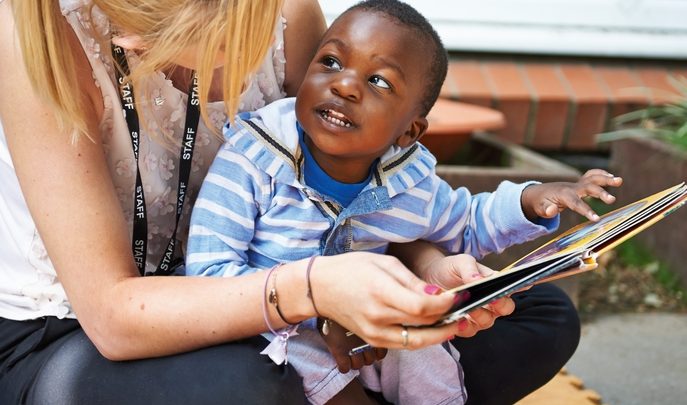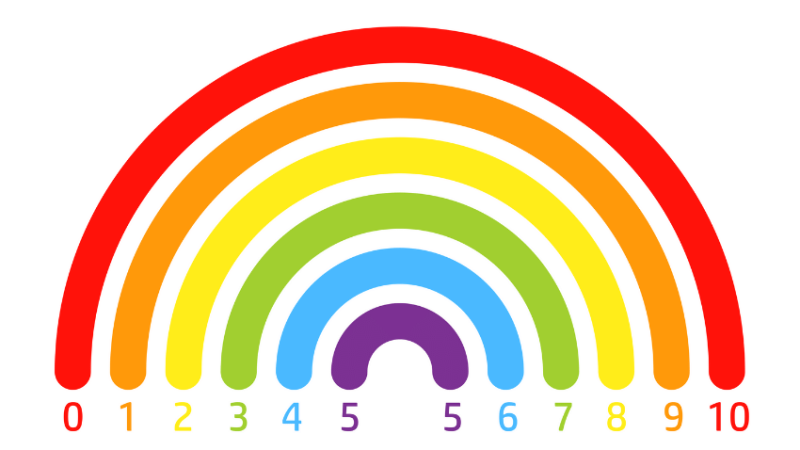8 Steps To Outstanding Communication During Early Years

I CAN's Mandy Grist offers some pointers for helping children become better communicators before the end of EYFS…

- by Mandy Grist

The important role that speech, language and communication play in children’s development has been well researched and documented. (Did you know a child’s vocabulary at age five will predict their educational success and outcomes at age 30?).
There is evidence to show that children’s communication skills can be supported by a wide range of professionals and practitioners. In fact, Ofsted tells us that the quality of the interaction between adults and children is what makes the most difference to children.
With almost a quarter of children not reaching expected levels for their age in communication and language by the end of the Early Years Foundation Stage – the proportion is even higher in areas of deprivation – the role practitioners play in supporting children to develop the best communication skills they can is an essential one.
Universal strategies
The use of universal and supportive strategies will benefit all children, helping them to become better communicators. You can help by making sure the following best-practice strategies are used by all the adults in your setting:
1. What to expect Knowing about typical language development milestones will ensure that adults are interacting at the appropriate levels with children. I CAN’s Talking Point website, talkingpoint.org.uk, is full of useful information.
2. Learning to listen Listening and attention skills are crucial foundation skills for later language development. Help children learn to listen by getting down to their level and engaging their attention before speaking or asking a question. Saying their name first encourages them to stop and listen.
3. Short sentences Children will find it hard to learn language if they are overwhelmed by long strings of words. Keeping your language simple will mean that they can pick out words more easily. If you repeat back what they say to you and you can add a word, it will help them learn to use longer sentences. So, if they say “juice” you can say “more juice”.
4. Comments not questions Make sure you don’t use too many questions; children won’t want to feel like they are being tested. Open questions like “Can you tell me about your picture?” enable children to use their language much more creatively than closed questions that only require a single word or yes/no answer.
5. Give them time Young children need a long time to think about what they’ve heard and put their response together, so make sure you leave enough time for this to happen. This might be between seven and 10 seconds.
6. Use repetition Children are still perfecting how to speak and often will make mistakes. Don’t correct them but instead repeat back the right way. That way they will hear a good model of what they wanted to say.
7. Make it fun Use books, rhymes and made-up words to engage children. Use silly voices to gain and keep their attention. The more children see you experimenting with language, the more likely they’ll be able to do it themselves.
8. Be creative Make use of a whole range of different ways to teach children new words. For example, if you’re teaching the names of fruits, encourage children to feel and smell the various fruits as they learn the words.
Use of these simple tips will mean that adults are ensuring they are doing all they can to enable children to become good communicators. For most children, this will be enough to help them to develop these crucial life skills. However, some with delayed language will need more targeted support – for example, I CAN’s Early Talk Boost programme. Early Talk Boost is a targeted intervention aimed at three- to four-year-old children with delayed language development, helping to boost language skills to help narrow the gap between them and their peers. Initial findings show that a nine-week intervention will lead children to make six months’ progress, on average.
Mandy Grist is Lead Adviser of Communications at I CAN; for more information, visit www.ican.org.uk or follow @icancharity









